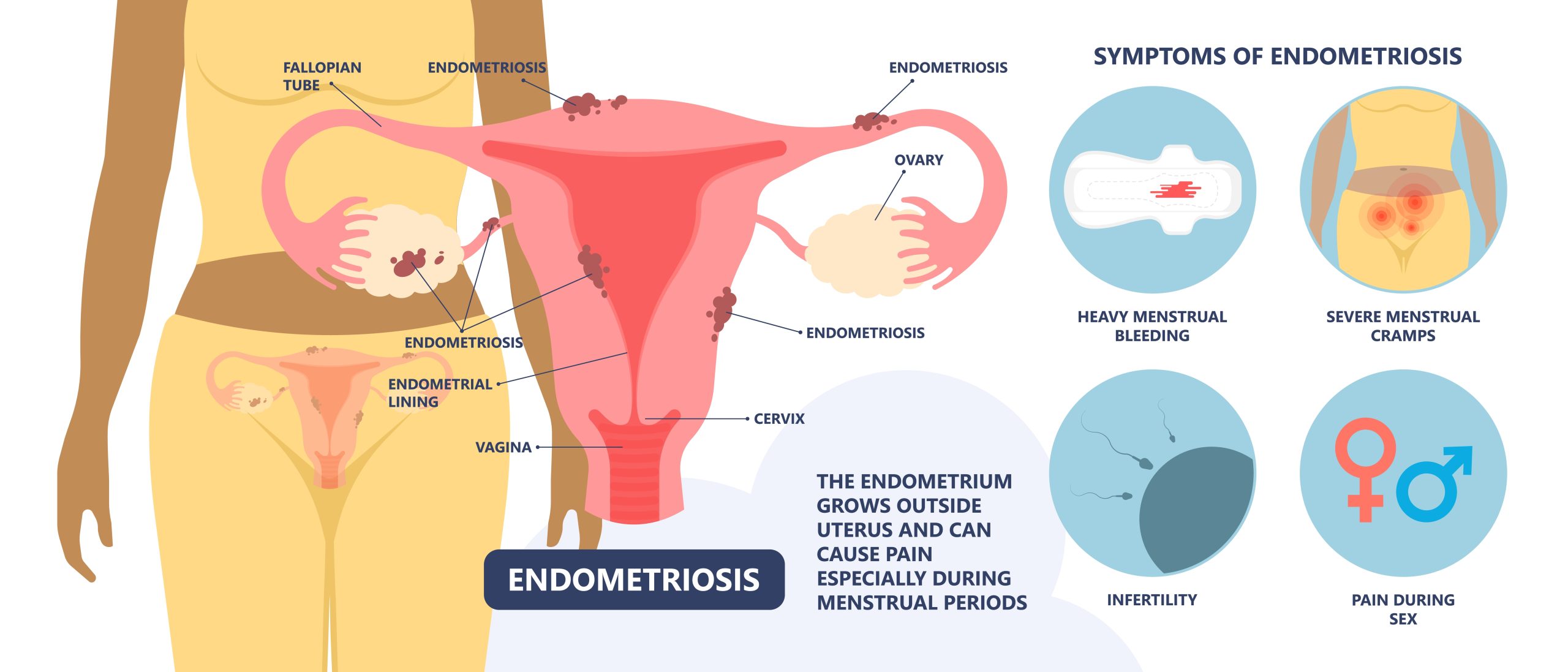Endometriosis is a common condition affecting 1 in 10 women.
And up to 50% of those with presenting with infertility
What is Endometriosis and how does it affect my fertility?
Endometriosis occurs when endometrial cells (that normally line the womb) grow outside of the uterus for example on the ovaries or bowel. The condition is more common in older women or those who have not yet had pregnancies. The use of the oral contraceptive pill is protective against endometriosis.
Endometriosis affects fertility in a number of ways including egg development, ovulation, fertilisation and implantation. If identified, endometriosis can be treated (both surgically and medically) to improve pregnancy rates from spontaneous conception or via assisted reproduction (e.g. ovulation induction or IVF).
Aside from fertility issues, endometriosis may cause pelvic pain (often related with periods or intercourse), or some women may have no symptoms at all.

How do I know if I have endometriosis?
Fortunately many women with endometriosis do not experience the classical symptom of period pain. Unfortunately, this makes predicting and diagnosing endometriosis very difficult.
Studies have shown that up to 50% of women presenting with unexplained fertility issues are subsequently found to have endometriosis.
The only way to diagnose (or exclude) endometriosis is via a keyhole surgery known as a ‘laparoscopy.’ This is a day procedure where we are able to directly visualise the presence, location and severity of your disease. At the same time it can be treated by burning or excising the endometriosis.


What are my treatment options?
Endometrial cells grow under the influence of the hormone oestrogen – that is produced by your ovaries. So the main principle behind treatment is suppressing oestrogen production and using progestogens that shrink and breakdown endometrial cells.
Like all things, treatment depends on your individualised clinical situation and desired outcomes. It may range from simple pain relief strategies to hormonal therapies or surgical ablation or excision. It is important to recognise that repeat surgeries are not always beneficial as this is a hormonal disease!
At Coastal IVF we believe strongly in diagnosing and treating endometriosis prior to assisted reproduction, usually with a combination of surgery and medical therapy. We have found this gives our patients the best chances to conceive, often without the need for IVF!
For More Information and Support:
If you suffer from, or suspect you may have endometriosis, come and see one of our doctors today. If you would like more information from trusted resources, follow the links below:
Coastal IVF – Patient Information Brochure on Endometriosis
Endometriosis Australia – https://www.endometriosisaustralia.org/
Jean Hailes Website for Women’s Health: Endometriosis – https://www.jeanhailes.org.au/health-a-z/endometriosis/
Make An Appointment
Don’t wait – start your journey today!
We’re here for you the entire way.
